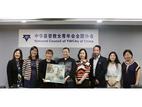In China, the generation of the young people born in the 1990s and later are largely depicted as rebellious and unconventional. Among this generation, the idol worship some fans practice has become like religion, says Chinese cultural insider.
One of the biggest entertainment scandals to hit June online could be that Kris Wu, a former member of the South Korean band EXO, was accused of having a string of casual relationships with women who were left feeling hurt and used.
Yet, what ended up drawing the most attention was not Wu’s arguably questionable lifestyle. Instead, it was what Wu’s fans were doing to support their idol: They posted malicious comments on the Sina Weibo account of the woman who first posted the accusations, and they declared their devotion to Wu, no matter what.
This incident has led people to believe that fervent fans are so protective of their idols that they can easily become aggressive.
In fact, it has been said that, recently, the idol worship some fans practice has become like religion. Fans are like pilgrims following a strict set of rituals -- closely watching for any news concerning their idol, organizing fan bases and activities for their idol, and even spending their money to buy hundreds of copies of their idol’s albums to contribute to the sales totals.
Wu Xiaobo, a financial writer says, “The internet-based model of ‘making a star’is changing China’s economy.”
According Wu, the traditional path to stardom was to first produce a good album or firm, then receive media coverage, and finally get heightened exposure by becoming part of a trending topic. But the new model is completely different: stars gather fans who are attracted to their looks and personalities and leave the rest-- the marketing and media coverage-- to their devotees.
Not all fans appreciate the way celebrity culture is changing. Li Songwei, a doctor of psychology at Peking University, has his explanation.
“The generation born in the 1970s and the 1980s were brought up under the heavy restrictions perpetuated by mainstream culture, which is why they are more eager to challenge conventions and vent their oppressed feelings.”said li to GQ magazine. But the younger generation is different. “The post-1990 generation already lives in a relatively free cultural environment. What they long for are things that are purely beautiful, positive and innocent.”










